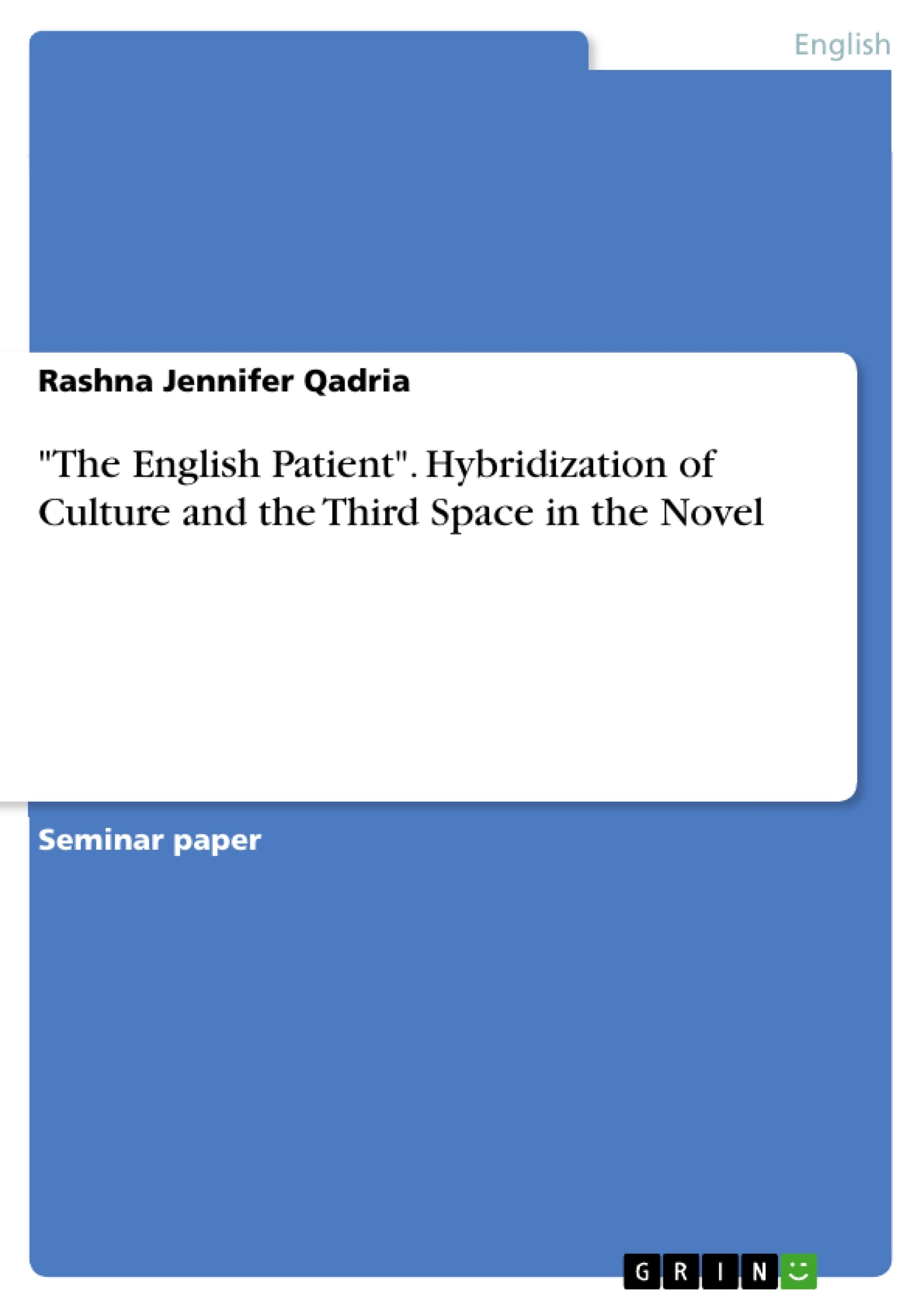Postcolonial literature is often used to describe the problems and consequences of the colonization. Here, the independence of the political or cultural is important. In relation to post colonialism, the term hybridity plays also a significant role. Hybridity as such can be seen as a state in which two or more cultures convene. Since every culture has its own identity, it can be said that because of the hybridization, the identity can be lost. National identity is a crucial aspect when it comes to hybridization due to the fact that it is possible that one can lose its national identity when he or she comes in touch with another culture after colonizing.
This paper attempts to show how the author succeeded to illustrate the occurrence of hybriditization for the different characters with different cultural backgrounds and to what extent the Third Space is a tool to create new cultural experiences for the characters. First, the term hybridity will be explained in more detail and afterwards the Hybridity Theory by Bhabha (1994) will be used in order to represent hybriditization. His theory will be applied on the four main characters of the novel in Section 2.1. The next section, Section 2.2 will be used to illustrate the hybridity in the Third Space with the focus on the spaces of the villa and the desert. In Section 2.3 whether the characters still have the desire to belong to the different culture after the climax of the novel or whether they detach themselves from the hybridity they once experienced.
Inhaltsverzeichnis (Table of Contents)
- Introduction
- Presence of Hybridity Through the Characters
- Cultural Hybridity in the novel The English Patient
- Hybridity in the Third Space
- Denial and Acceptance of Hybridity
- Conclusion
Zielsetzung und Themenschwerpunkte (Objectives and Key Themes)
This paper aims to examine how the author, Michael Ondaatje, depicts the process of hybridization in his novel The English Patient, specifically by analyzing the experiences of characters with diverse cultural backgrounds. The paper also explores the role of the "Third Space" in fostering new cultural experiences for these characters.
- Cultural Hybridity and its impact on identity
- The concept of the Third Space as a site of cultural mixing
- The interplay of national identity and cultural belonging
- The consequences of colonialism and cultural encounters
- The theme of loss and the search for identity in post-war society
Zusammenfassung der Kapitel (Chapter Summaries)
The Introduction section provides a background on postcolonial literature and the concept of hybridity, highlighting its significance in understanding the complexities of cultural encounters and identity formation. It introduces Michael Ondaatje's novel, The English Patient, and its exploration of intercultural relationships and the impact of war on individual identities.
The chapter titled "Presence of Hybridity Through the Characters" delves into the concept of hybridity and its various interpretations. It explores the relationship between hybridity and national identity, discussing theories by Homi Bhabha and others, and examining how these theories apply to the characters in the novel.
Schlüsselwörter (Keywords)
The primary keywords and focus topics of this work include postcolonial literature, hybridity, national identity, cultural encounters, the Third Space, and The English Patient by Michael Ondaatje.
Frequently Asked Questions
What is "Hybridity" in the context of postcolonial literature?
Hybridity refers to the state where two or more cultures meet and mix, leading to the creation of a new, blended identity.
What is the "Third Space" according to Homi Bhabha?
The Third Space is a conceptual area where cultural differences meet and negotiate, allowing for new cultural identities to emerge.
How do the characters in "The English Patient" experience hybridization?
The novel shows how war and colonial encounters strip characters of their national identities, forcing them to form new, hybrid selves in the villa and the desert.
Does hybridization lead to a loss of identity?
The paper discusses how original national identities can be lost or transformed when individuals encounter and adopt elements of another culture.
Which settings are analyzed as "Third Spaces" in the novel?
The Italian villa and the North African desert are analyzed as key spaces where traditional boundaries are blurred and hybridity occurs.
- Citation du texte
- Rashna Jennifer Qadria (Auteur), 2018, "The English Patient". Hybridization of Culture and the Third Space in the Novel, Munich, GRIN Verlag, https://www.grin.com/document/595177



